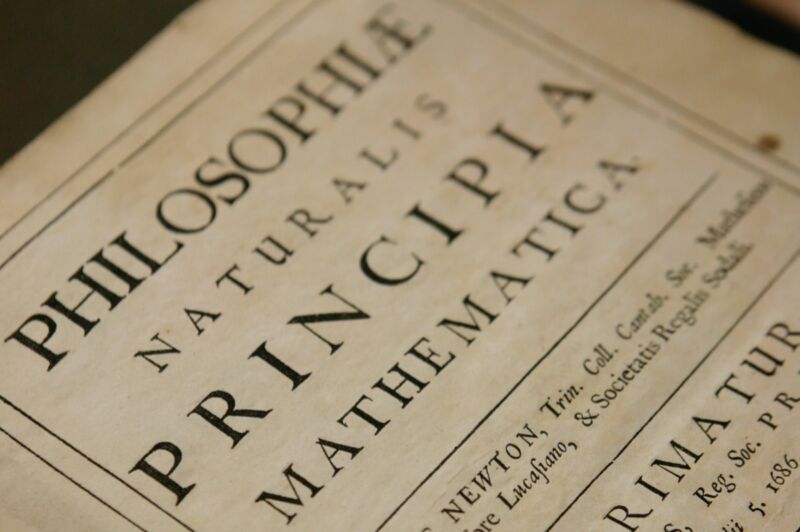Historical detectives discover more first editions of Isaac Newton’s Principia

Enlarge / A copy of Isaac Newton's Philosophiae Naturalis Principia Mathematica, one of the most important scientific works ever written, housed at the Science Museum Library and Archives in Swindon, England. (credit: Daniel Berehulak/Getty Image)
Isaac Newton's Mathematical Principles of Natural Philosophy (known by its shortened Latin name, the Principia) is a massive, three-volume 17th-century treatise that is one of the most influential scientific books ever written. The famed 18th-century mathematician Joseph-Louis Lagrange described it as "the greatest production of a human mind." Science historians have long debated just how many copies were produced during the book's first print run.
Thanks to two intrepid researchers who spent more than a decade scouring records and archives across the globe, it now seems there could be more than twice as many surviving first editions as the long-accepted prior best estimates. They described the findings of their census in a new paper published in the journal Annals of Science.
As a young man, Newton attended Cambridge University, earning his undergraduate degree in science and math in 1665. His graduate studies were interrupted by the outbreak of the plague in Cambridge. Students and professors alike fled the city, and Newton returned home for the ensuing year, until the danger had passed. In that one year, he laid the groundwork for revolutionary ideas that would change the course of scientific history.
Read 14 remaining paragraphs | Comments